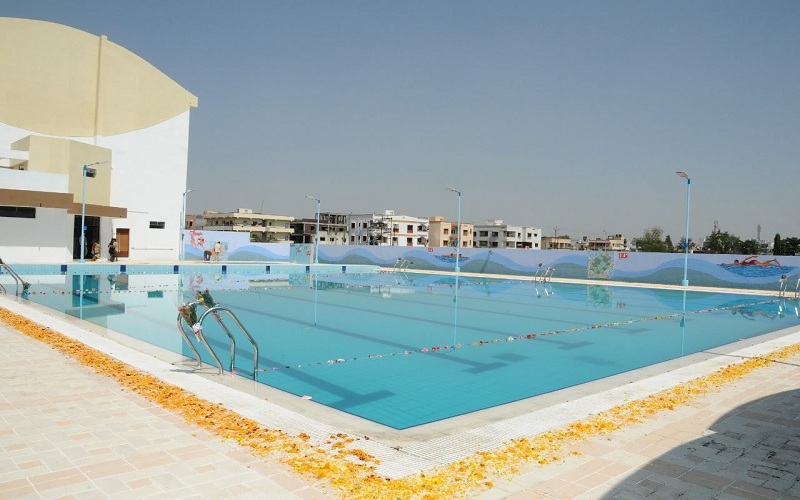When you’re transferring tens of thousands of dollars and hundreds of square feet into your backyard pool, the debate between salt water and chlorine may seem beside the point. But here’s the reality: This one decision will dictate your wallet for the next 10 to 20 years. One of the surprising things is that the Swimming pool contractor India you hire to install it may be as important as the system itself.
The Real Cost Breakdown
It’s important to look beyond the marketing claims. A saltwater system will need an initial outlay for the salt chlorine generator plus installation. Traditional chlorine pools cost next to nothing extra to establish, considering you’re in for the long haul of buying second hand stores’ entire supply of chlorine tablets, shock treatments and balancing chemicals.
Why Chlorine Isn’t as Economical as It Seems?
Most saltwater pool owners huge a year on salt water along with occasional acid to balance out the pH. Chlorine may appear to be the cheaper alternative up front, but in view of the larger picture chemical balancing, maintenance, equipment wear and tear, long term pool health costs accrue. During a 10-year ownership, chlorine systems need to be maintained, repaired and treated more often. Instead, options such as saltwater or ozone systems which require more up-front investment are often better long-term investments.
Why the Right Contractor Can Make or Break Your Project?
An inexperienced contractor may install a salt system without evaluating what your pool is made of. Salt is corrosive. If you have a pool with particular metal fixtures, natural stone coping or certain types of tile, the salt water will eat them away over time. I’ve known homeowners to be stuck with unexpected replacement costs for stone because their contractor didn’t mention material compatibility before they started.
Good contractors do a complete material evaluation before advising one system or the other. They will suggest salt-resistant fixtures and make you understand to go for protective sealants for prone surfaces. Further they would size the generator correctly for your pool volume. Too-small generators function whole time and wear out in just 2 years instead of the at least 7. If your pump is huge, you’re just wasting electricity and producing more chlorine while ruining pool surfaces.
The Maintenance Reality Check
Saltwater proponents like to say their pools are “maintenance-free.” That’s misleading. What’s the truth is that salt systems automate chlorine production so pool owners don’t have to make weekly runs for heavy chemical buckets. You are still walking on water chemistry, cleaning filters and brushing walls.
The difference? (And the high chemical levels help explain that irksome “pool smell” everyone blames on chlorine but is actually a result of those chemicals reacting with grime and urine.) In fact, your family swims more when the water is comfortable which means you’re getting better use out of your investment.
Classic chlorine pools are certainly higher-maintenance. “You’re checking more, you’re dosing chemicals more, you have a wider spread in water quality. This is a chore that many busy homeowners’ families forget to do, resulting in an algae bloom and expensive shock treatments as they struggle to regain control.
The Equipment Lifespan Factor
Good contractors help you to understand the replacement timeline. Salt chlorine generator cells, depending on usage and care will last 3 to 7 years and are a small investment or so to replace. Budget for this over the long term.
But here’s where you save and don’t notice it: saltwater systems are easier on pool equipment. Pumps, heaters and automated systems that come into contact with harsh chlorine chemicals wear down more quickly. A good plastering contractor will tell you that, while it seems like a lot to renew the generator cells (the average price for replacing either two or four every several years), chlorine pool owners encounter ongoing premature equipment failures that makes their cost look extremely attractive.
Energy Consumption: The Overlooked Expense
Salt systems operate by electricity, increasing the price of your power bill. Though they do have a higher upfront cost, new variable-speed pumps (which top contractors are installing as standard) more than make this up while saving you thousands on your total dollar purchase of energy.
Conclusion
Leading swimming pool contractor India save money by determining the system that best fits your individual circumstances your budget, lifestyle, climate and so on. They’re not trying to sell you whatever system has the best profit margin, but engineering a solution that will work for your total cost of ownership.
The least expensive contractor will construct your project without direction. A great contractor is going to challenge your assumptions, let you see the real numbers and design a pool ecosystem that operates efficiently for decades.
Not all salt water is superior, and chlorine is not a relic. Which is best for you depends on your situation. But selecting a contractor who gets the larger financial picture? It’s an investment that pays off for years.


